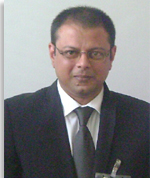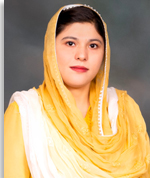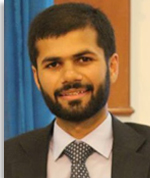Masters
About Us
Vision, Mission, PEOs, and PLOs

Vision of the Institute To be a world class engineering institute in the domain of energy and environment recognized for excellence in education, innovation and entrepreneurship leading to sustainable development of the society. |
|
Mission of the Institute The mission of the Institute is, to provide a high-quality learning experience to produce Energy & Environmental Engineers to meet the human resource needs of the country, and to develop technical skills in design, synthesis, optimization, and operations that will equip graduates in assuming leadership positions in industry, education, research and services. |
|
| Program Educational Objectives (PEOs) The graduates from the Institute are expected to meet the following Program Educational Objectives (PEOs) through our educational structure |
|
PEO1: Apply engineering knowledge to identify and address the technical and societal problems. |
|
PEO2: Develop innovative ideas for technological and professional growth in the field of energy engineering. |
|
PEO3: Work effectively as a team member as well as lead multidisciplinary teams while demonstrating the interpersonal and management skills by fulfilling ethical responsibilities. |
|
| Program Learning Outcomes (PLOs) | |
1. Engineering Knowledge An ability to apply knowledge of mathematics, science, engineering fundamentals and an engineering specialization to the solution of complex engineering problems. |
|
2. Problem Analysis An ability to design solutions for complex engineering problems and design systems, components or processes that meet specified needs with appropriate consideration for public health and safety, cultural, societal, and environmental considerations. |
|
3. Design / Development of Solutions An ability to design solutions for complex engineering problems and design systems, components or processes that meet specified needs with appropriate consideration for public health and safety, cultural, societal, and environmental considerations. |
|
4. Investigation An ability to investigate complex engineering problems in a methodical way including literature survey, design and conduct of experiments, analysis and interpretation of experimental data, and synthesis of information to derive valid conclusions. |
|
5. Modern Tool Usage An ability to create, select and apply appropriate techniques, resources, and modern engineering and IT tools, including prediction and modelling, to complex engineering activities, with an understanding of the limitations. |
|
6. The Engineer and Society An ability to apply reasoning informed by contextual knowledge to assess societal, health, safety, legal and cultural issues and the consequent responsibilities relevant to professional engineering practice and solution to complex engineering problems. |
|
7. Environment and Sustainability An ability to understand the impact of professional engineering solutions in societal and environmental contexts and demonstrate knowledge of and need for sustainable development. |
|
8. Ethics Apply ethical principles and commit to professional ethics and responsibilities and norms of engineering practice |
|
9. Individual and Teamwork An ability to work effectively, as an individual or in a team, on multifaceted and /or multidisciplinary settings. |
|
10. Communication An ability to communicate effectively, orally as well as in writing, on complex engineering activities with the engineering community and with society at large, such as being able to comprehend and write effective reports and design documentation, make effective presentations, and give and receive clear instructions. |
|
11. Project Management An ability to demonstrate management skills and apply engineering principles to one’s own work, as a member and/or leader in a team, to manage projects in a multidisciplinary environment. |
|
12. Lifelong Learning An ability to recognize importance of and pursue lifelong learning in the broader context of innovation and technological developments. |
1. |
Punjab Power Development Company, Government of the Punjab, 660×2 MW coal-based power plant at Qadar Abad - Sahiwal District, Punjab. |
2. |
M/s Electro Power Generation Pvt. Ltd. 50 MW coal-based power plant at Kalar Kahar, Distt. Chakwal. |
3. |
M/s Saba Power Generation Company Pvt. Ltd. 50 MW coal-based power plant at Kattha Sugral, Distt. Khushab. |
4. |
M/s Noble Power Generation Company Pvt. Ltd. 50 MW coal-based power plant at Mauza Dharabi, Tehsil Tala Gang, Distt. Chakwal. |
5. |
M/s Malakwal Power Pvt. Ltd. 50 MW coal-based power plant at Vareena Distt. Mandi Bahuddin. |
6. |
Punjab Power Development Company, Government of the Punjab, 110 MW coal-based power plant near Industrial Estates, Sundar, Lahore. |
7. |
Punjab Power Development Company, Government of the Punjab, 110 MW coal-based power plant near M-3 Industrial City, Faisalabad. |
8. |
2×660 MW coal-based power plant at Rahim Yar Khan by Nishat group and Shanghai Electric Company, China. |
9. |
2×660 MW coal-fired power project at Balloki, Kasur by M/s. China Gezhouba Group Co., Ltd. |
10. |
Punjab Power Development Company Limited, Government of the Punjab, 150 MW coal-based power plant at Sialkot. |
11. |
Punjab Power Development Company Limited, Government of the Punjab, 150 MW coal-based power plant at Faisalabad. |
12. |
Punjab Power Development Company Limited, Government of the Punjab, 150 MW coal-based power plant at Multan. |
13. |
Punjab Power Development Company Limited, Government of the Punjab, 150 MW coal-based power plant at Lahore. |
14. |
30 MW waste-to-energy power plant at Lakhodair site Lahore undertaken by Lahore Waste Management Company (LWMC). |
In addition to evaluation of technical feasibility studies, the Institute provided testing facility to the Punjab Government for the re-evaluation and re-estimation of the Punjab coal reserves. The Institute is also providing free consultancy services to the private enterprises for; gasification, coal cleaning, coal fired electricity generation, domestic utilization of coal, substitution of furnace oil/natural gas by coal in the industrial sector, transfer of technology from the developed/developing countries to Pakistan and the spread of knowledge, experience, and skills to public within the country by integrating results on indigenous energy sources. The Institute is also providing analytical testing services at the cheapest rates to the academia, research institutions, and industry. |
|
The human resource produced by the Institute is fully capable to handle operation of power plants and their associated laboratories which are being setup throughout the country. Furthermore, with the success of offered academic programs, the Institute would be able to produce highly skilled and trained manpower in the disciplines of energy engineering, environmental engineering, risk and reliability engineering, sustainability, energy economics and policy, environmental law, energy auditing, and conservation. The Institute will not only provide professional engineers and technologists to the country in aforementioned areas but also provide policy guidelines to the Government in energy, economics, strategy, energy security, and climate change. |
|
The Institute has targeted to establish an "Energy Engineering Research & Development Center" that will perform R & D activities hand in hand with the Institute to get tangible outcomes on issues of national and industrial importance. Keeping in view the expertise of the faculty members, the Institute is also planning to establish the following divisions: |
|
1. |
Clean Coal Division |
2. |
Renewable Energy Division |
3. |
Energy Efficiency and Conservation Division |
4. |
Energy Storage Division |
5. |
Waste to Energy Division |
6. |
Pollution Control Division |
7. |
Energy and Environmental Policy Division |
| General Guidelines for Entry Test M.Sc. and Ph.D 2024 |
|
| Prospectus of B.Sc. (Engg.) Energy Engineering Fall 2024 | |
| Prospectus of M.Sc. (Engg.) Energy & Environmental Engineering/M.Phil. Coal Technology/Ph.D. Energy & Environmental Engineering Fall 2023 | |
| Official Facebook page of IEEE | |
| Introductory Video of IEEE | |
Programs
Presently the Institute of Energy & Environmental Engineering offer a wide range of degree programs.
M. Phil
M.Phil. Coal Technology
Read moreOur Staff
- All Staff
- Teaching
- Administrative

Prof. Dr. Hamed Sattar
Director

Prof. Dr. Mahmood Saleem
Professor (On Leave)

Prof. Dr. Shahid Munir
Professor

Dr. Syed Sheraz Daood
Associate Professor

Dr. Rizwan Haider
Assistant Professor

Dr. Hassan Zeb
Assistant Professor

Dr. Muhammad Sarfraz Akram
Assistant Professor

Dr. Muhammad Zafar
Assistant Professor

Dr. Zaeem Bin Babar
Assistant Professor (TTS)

Dr. Tausif Ahmad
Assistant Professor

Dr. Aqeel Afzal
Assistant Professor

Engr. Dr. Osama Majeed Butt
Assistant Professor

Dr. Hamna Asad
Assistant Professor

Engr. Hafiz Abuzar Ahsan
Lecturer

Miss. Iqra Aziz
Lecturer

Mr. Muhammad Ramzan
Assistant

Mr. Muhammad Rizwan Bari
Stenographer

Engr. Muhammad Saif Ullah
Lab. Engineer
Institute of Energy & Environmental Engineering
Electrical, Energy & Environmental Engineering
This Institute was established as Centre for Coal Technology with the funds of worth Rs. 13.408 million and Rs. 34.390 million in the years 2004 & 2006 from HEC, respectively and further upgraded with HEC grant of Rs. 182.79 million in the year 2015. Later, this Centre was transformed into Institute of Energy &....
| Summary of existing and under construction infrastructure facilities | |||
Infrastructure / facilities |
Existing |
Under construction |
Total |
Covered Area (sq. ft.) |
20,388 |
86,383 |
106,771 |
Lecture Halls |
6 |
14 |
20 |
Laboratories |
1. Fuel testing & characterization 2. Gas engineering 3. Coal characterization 4. Coal beneficiation 5. Environmental chemistry 6. Coke characterization 7. Pilot plant lab 8. Computer lab |
1. Liquid fuel research-I 2. Liquid fuel research-II 3. Petroleum processing 4. Gas engineering 5. Solar energy 6. Wind energy 7. Advanced research 8. Workshop practice 9. Biofuel technology 10. Thermal engineering 11. Fuel cell 12. Hydroelectric energy 13. Environmental Engineering 14. Instrumentation & process control 15. Fluid & particle mechanics 16. Reaction kinetics engineering 17.Mass transfer 18. Heat transfer 19. Thermodynamics 20. Computer lab |
28 |
Library |
1 |
1 |
2 |
Faculty offices |
7 |
30 |
37 |
Administrative office |
1 |
1 |
2 |
Auditorium |
0 |
1 |
1 |


